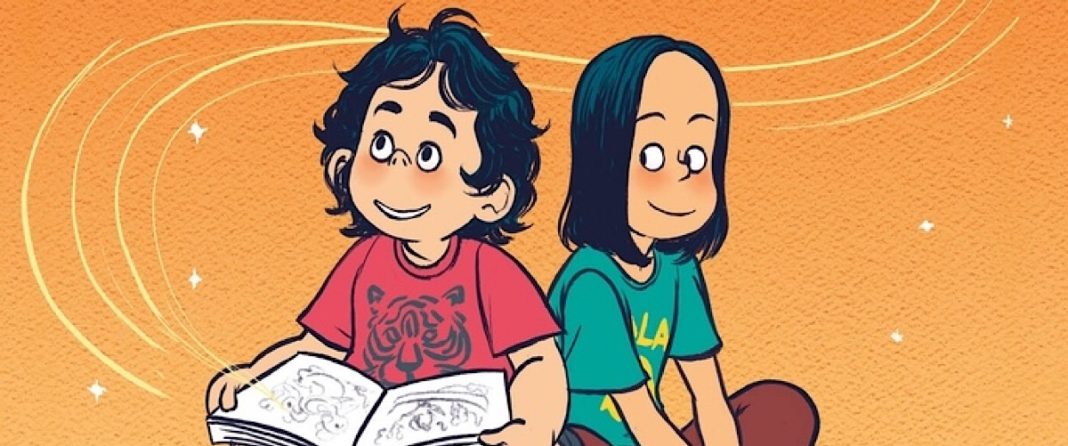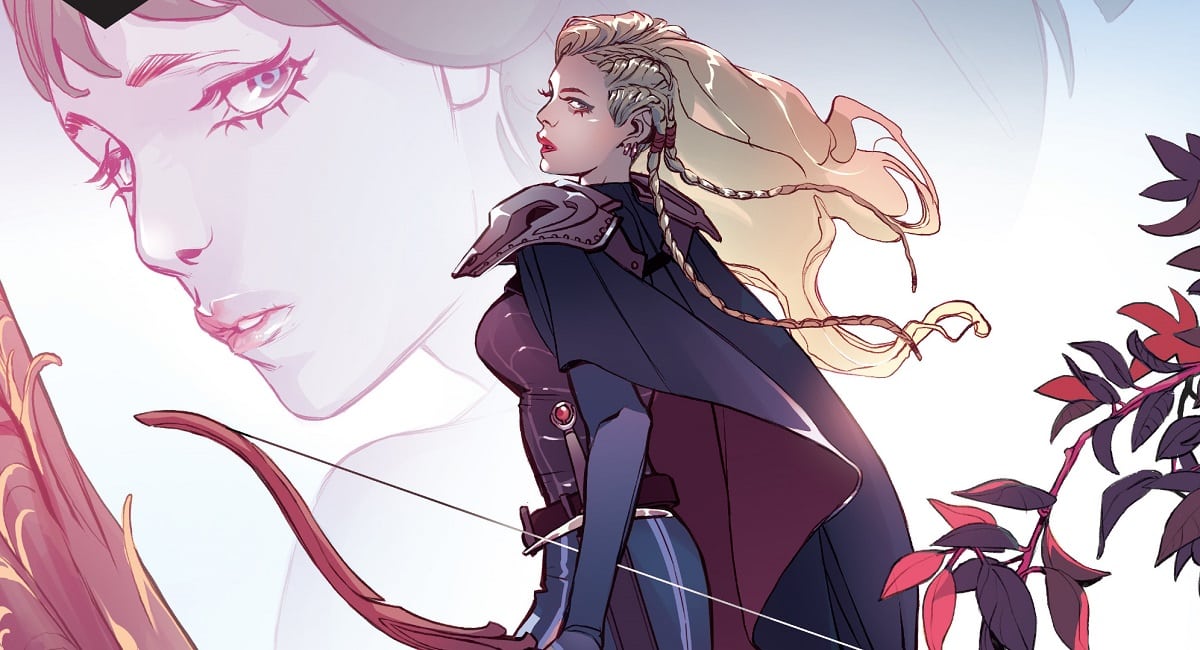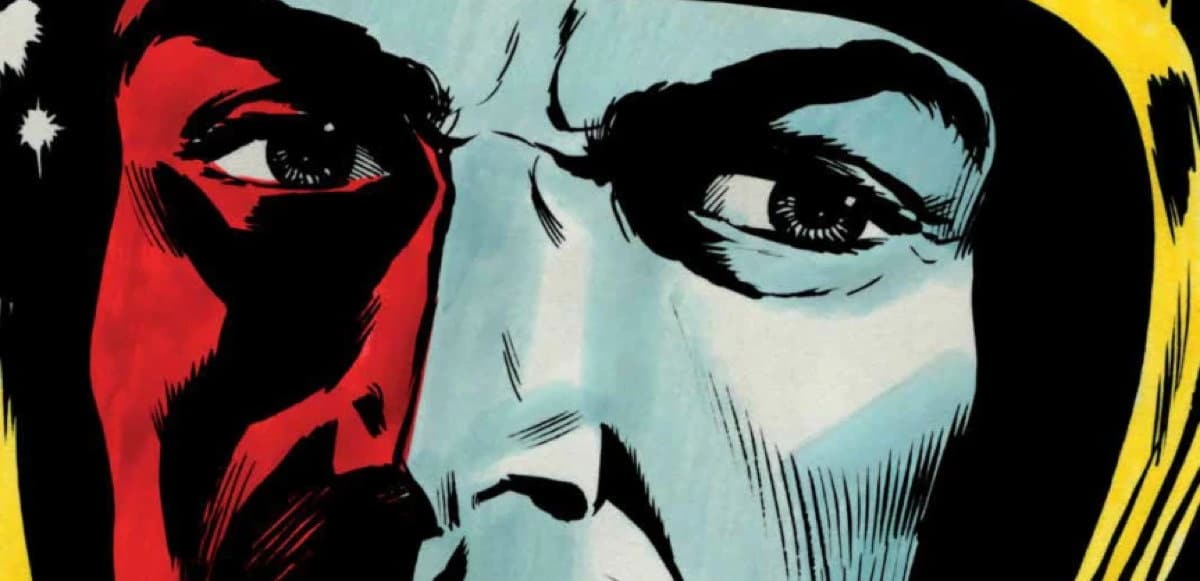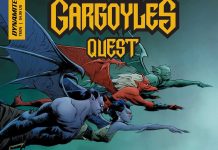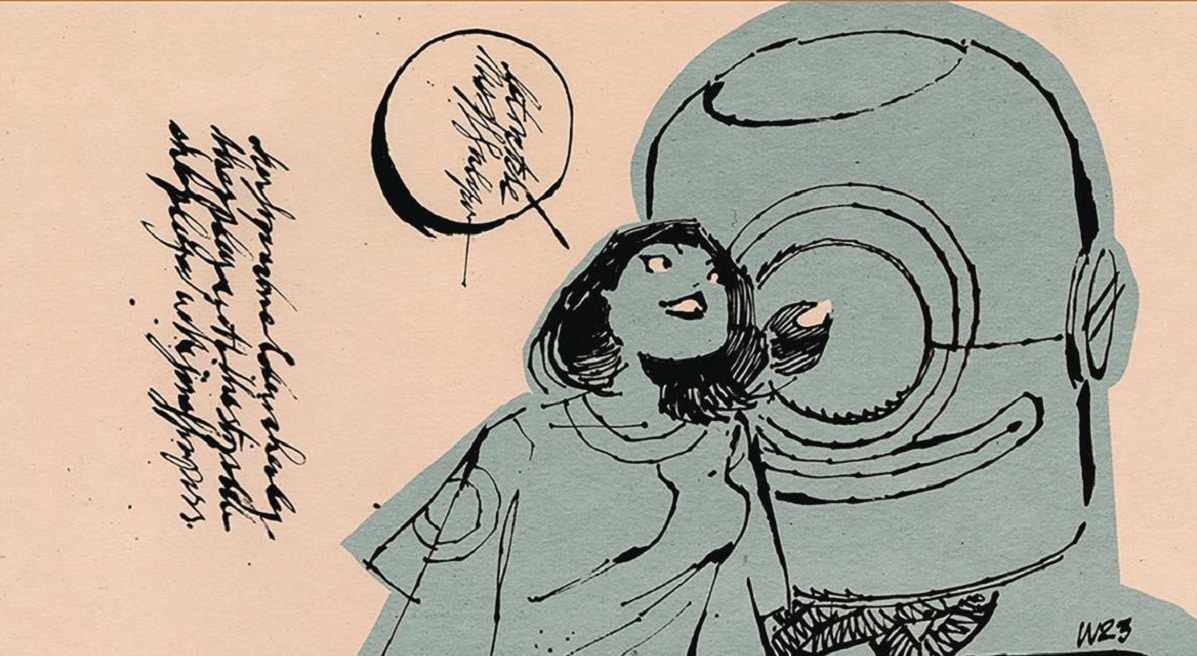Eisner Award-winning creator Jen Wang’s (The Prince and the Dressmaker) visual storytelling draws readers into familiar yet very powerful worlds that pull at the heartstrings with uplifting appeal. Stargazing, her latest, tells the story of two friends, Christine and Moon, with very different personalities whose lives change when one is diagnosed with a brain tumor. The events are drawn from Wang’s own adolescent and childhood experiences, and she was kind enough to talk to The Beat about her creative process.
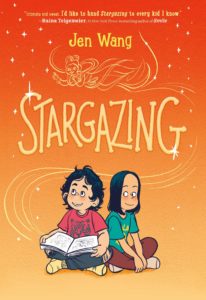
Jen Wang: Yes, both families in Stargazing were based on my own family, but also the other Asian families around me growing up. There are certain common threads but also lots of little quirks and things that make your own family unique. Myself, I had a middle class culturally traditional immigrant family like Christine, but we were also Buddhist, vegetarian, and my parents were pretty casual and open-minded like Moon’s family. So I tried to show a range with Christine and Moon’s families being different even though they are both similar to my own.
Powell: The two main characters in Stargazing, Moon and Christine, are such interesting personality contrasts. Which character do you identify most with? Moon or Christine?
Wang: I relate to both! Initially I related to Moon most since she is the artist and the dreamer, but that’s why I decided to write it more from Christine’s perspective. I felt it would be too easy to judge her and giving her more of myself was a way I could truly present them both authentically.
Powell: In several panels at SDCC, there was talk about Stargazing reflecting your own experience with a brain tumor. So when Moon hallucinates seeing the moon goddesses, for example, is that something that also happened to you?
Wang: I did have a brain tumor just like Moon when I was 6 years old. I saw visuals during my seizures though not moon goddesses. They weren’t frightening to me as a kid, because I didn’t understand what was happening to me. Having the seizures almost felt like a familiar thing, a special secret I had, until they started getting worse and I couldn’t hide them anymore. So I felt the seizures were a good way to show how we can craft narratives about ourselves. Moon doesn’t understand what’s happening to her but she doesn’t question it because it makes her feel like she belonged somewhere.
Powell: Was it scary reliving the experience of the tumor?
Wang: I think because it happened to me so young (and because there was a positive outcome), I wasn’t traumatized by it. It was just a thing that happened to me that was very different from every other part of my life. I have very vivid memories of it, but mostly I felt very loved and cared for by everyone. So weirdly, it was a positive experience for me. I don’t think I ever put it that way before!
But I do feel very lucky to have gotten through that experience with all my visual cognitive abilities intact. I can read and I can draw, and those are two very big parts of my life.
Powell: Which storytellers or cartoonists have had the biggest influence on your own art?
Wang: There’ve been so many inspirations in my life, but if I had to pinpoint the origins of a lot of my comics it would be from watching Disney cartoons as a kid. I loved The Little Mermaid so much, and I knew someone’s job was to draw the characters and give them real emotions and stories. I wanted to do whatever that magic was.
Powell: You’ve had a lot of involvement with the libraries and with literary projects in and around Los Angeles. What do libraries mean to you?
Wang: Oh they mean so much. I was a pretty insatiable reader in elementary school so I went to both the school and local public libraries a lot. Now that I’m older I see them as not just an important but also a necessary community service. Libraries do so much more than just lend books, they are a safe space for the whole community and they offer many free services to people who might otherwise not be able to get them. The first library event I did in LA, I realized it was to offer summer programming for kids out of school who otherwise have no place to go or have food to eat when school isn’t in session. It made me really emotional! It makes me happy to participate in library activities when I can.
Powell: Congratulations on your Eisner for The Prince and the Dressmaker! Did you ever dream that the book would become such a critical hit?
Wang: It’s hard to say! I knew it would have a very devoted core audience, just from the responses I got from people as I was making it. I just couldn’t tell how it would fare beyond that. I’m very grateful and appreciative of where it’s gone!
Powell: So one character in Stargazing—Joseph Chu—sounds a lot like a certain Asian American NBA basketball player. Are you a huge Jeremy Lin fan?
Wang: I don’t watch basketball so I only know Jeremy Lin from being an Asian-American celebrity, but yes he’s very interesting! He’s exactly the kind of figure Christine and her friends would be really obsessed with. He’s an exciting athlete, but also feels so familiar, like someone who went to school or church with your cousins.
Powell: What about K-Pop? And if yes, what are some of your favorite K-pop groups?
Wang: I don’t know a ton about K-Pop either (are you seeing a trend), but while working on STARGAZING I would listen to Blackpink or Red Velvet. Chara is based on CL from 2NE1. I know K-Pop boy groups are the rage, but I guess I’m just more of a fan of the girl group sound?
Powell: As a teenager, what musical groups interested you most?
Wang: So I’m a nerd, but when I was Moon and Christine’s age I was mainly listening to showtunes. I was big on Phantom Of The Opera and Les Miserables, that sort of thing. Otherwise I guess Mariah Carey! I didn’t really discover bands and broaden my musical interests until I got to high school and mixtapes and Napster happened.
Powell: What books or comic books are you currently reading?
Wang: I’ll read anything by Sophia Foster-Dimino, Eleanor Davis, and Tillie Walden. The new Best American Comics edition edited by Jillian Tamaki looks good. There’s an organization called ABO Comix that puts out anthologies of comics by queer prisoners with the proceeds going back to the contributors. I have volumes 1 and 2 and they’re both fantastic.
Powell: You’re one of the major forces behind Comic Arts Los Angeles. Now that the festival has celebrated its five-year anniversary, what do you want to see happen in the next five years?
Wang: Five years feels so far ahead, but I hope it continues to thrive! We’ve been moving toward integrating the event more with local community projects we care about, and so hopefully that continues.
Powell: Finally, what is next on Jen Wang’s project list now that Stargazing is out?
Wang: It’s too soon to talk about it, but I am working on another book. Ask me again in another year!
Stargazing hits stores September 10 from First Second.


